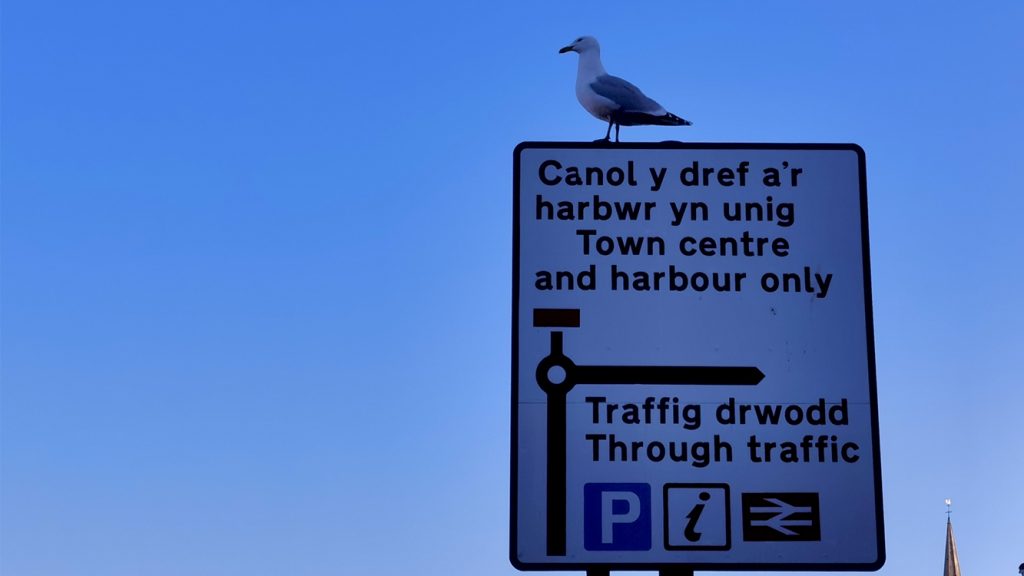Take time out of your life to be close to nature and give your mind and body a break from trivialities through 30 Days Wild challenge.

Sitting barefoot on Tenby’s beach on Sunday afternoon, the sound of children’s laughter in the distance reached my ears along with the sea breeze. The sun warmed my back and I felt incredibly relaxed at this moment watching the waves lap against the sand.
Joining the 30 Days Wild, a nature challenge held by The Wildlife Trusts to encourage people to do 30 random acts of wildness, I decided to do something wild every day for a week to see what difference it makes to me. And a short trip to the beach to enjoy the sun was my first day’s challenge.
“Clickety-clack, clickety-clack…” The train is gradually pulling out of the city and the rare sunlight shines on the wetlands that sweep by outside the windows, flooding the water with a glow. It took me three hours to travel from Cardiff to Tenby, one of the best seaside towns in Wales.
Following the crowds on the narrow road past the macaroon-coloured houses on the roadside, I finally saw the sea. Walking down the damp, mossy stone steps towards the beach, seagulls squawked as they flew over my head. Breathing in the humid air, the tiredness of the road trip seems to disappear at once.
“Nature plays a vital role in supporting our health and wellbeing,” said Russell Cooper, Head of Corporate Partnerships in The Wildlife Trusts which will hold 30 Days Wild in June. “Spending just five minutes outside surrounded by nature helps lower stress levels and staff who are able to spend time in natural spaces are happier and more productive.”
The last time I left my flat to enjoy the natural beauty of Wales was around Christmas last year. I went to Cardiff Bay. However, because of the lockdown and the bad weather, I had to leave in a hurry.
Since then, I felt like I was trapped in my tiny room. The building still under construction across the window has overtaken my floor, just as the pressure from life and school has gradually overwhelmed me.

According to Harry Shepherd, the Senior Media Officer of The Wildlife Trusts, last year, 41% of employees experienced poor mental health caused by work.
“The benefits of getting out in nature for our mental wellbeing has become well known during the pandemic,” said Dr Jonathan Reeves, the Principal Research Officer of Health & Wellbeing from Wildfowl & Wetlands Trust (WWT).
Dr Reeves said: “The blue and green space found in wetlands seems to be particularly beneficial as demonstrated by today’s MHF research showing that being by water provides the biggest positive impact on people’s mental health compared to all other ways to connect with nature.”
The sun was gone from the beach in the evening. And the sea wind brought a cool breeze to my body. Before leaving, I walked alone to the beach looking out over the inky blue sea ahead. I was in a quiet mood.
The day after returning from Tenby, on my way back from school to my flat, the animal statues on the wall of Bute Park attracted me. So, I decided to go in for a walk.
Sitting down on a sunny lawn with not many people around, I tried to find the Robin bird. It became my nature challenge for that day.
It’s difficult to find those fiery little birds in the park. Some unknown birds were chirping in the trees above my head and I couldn’t find them. Listening to their chattering, I couldn’t help thinking: “Were they talking or were they arguing? Probably discussing what to have for dinner, just like me.”
Instead, the big squirrels were easy to be found running back and forth between the trees. It made me wondered what they were up to.
I spent the whole afternoon in the Bute Park trying to capture the moments of wildlife by camera. Walking through Cardiff city centre on the way home, people were drinking and chatting loudly outside the restaurant. It was once a bit of a racket now sounds very lively. “Now that’s life!” I thought.

For the next few days, I travelled through the city centre to the Wildlife Explorer Trails in Roath Park. Surrounded by trees, I followed the instructions in the brochure to identify hazelnuts and pine cones. I also came to the rooftop on the eighth floor of the flat after a long day of study. Breathing in the fresh air outside and enjoying the sunset over Cardiff…
I also went back to Cardiff Bend, a place I hadn’t been able to experience properly before. This time I walked along the bay trying to identify the various plants that were already in flower by looking at the illustrations.
After a short week finding more connection with nature between life and study, now I looked at the building under construction thinking about the upcoming assignment. There is still a lot going on, but I seem to feel a lot less pressure on me.
“Next time, maybe I should go to Rhossili Bay beach,” I think.
